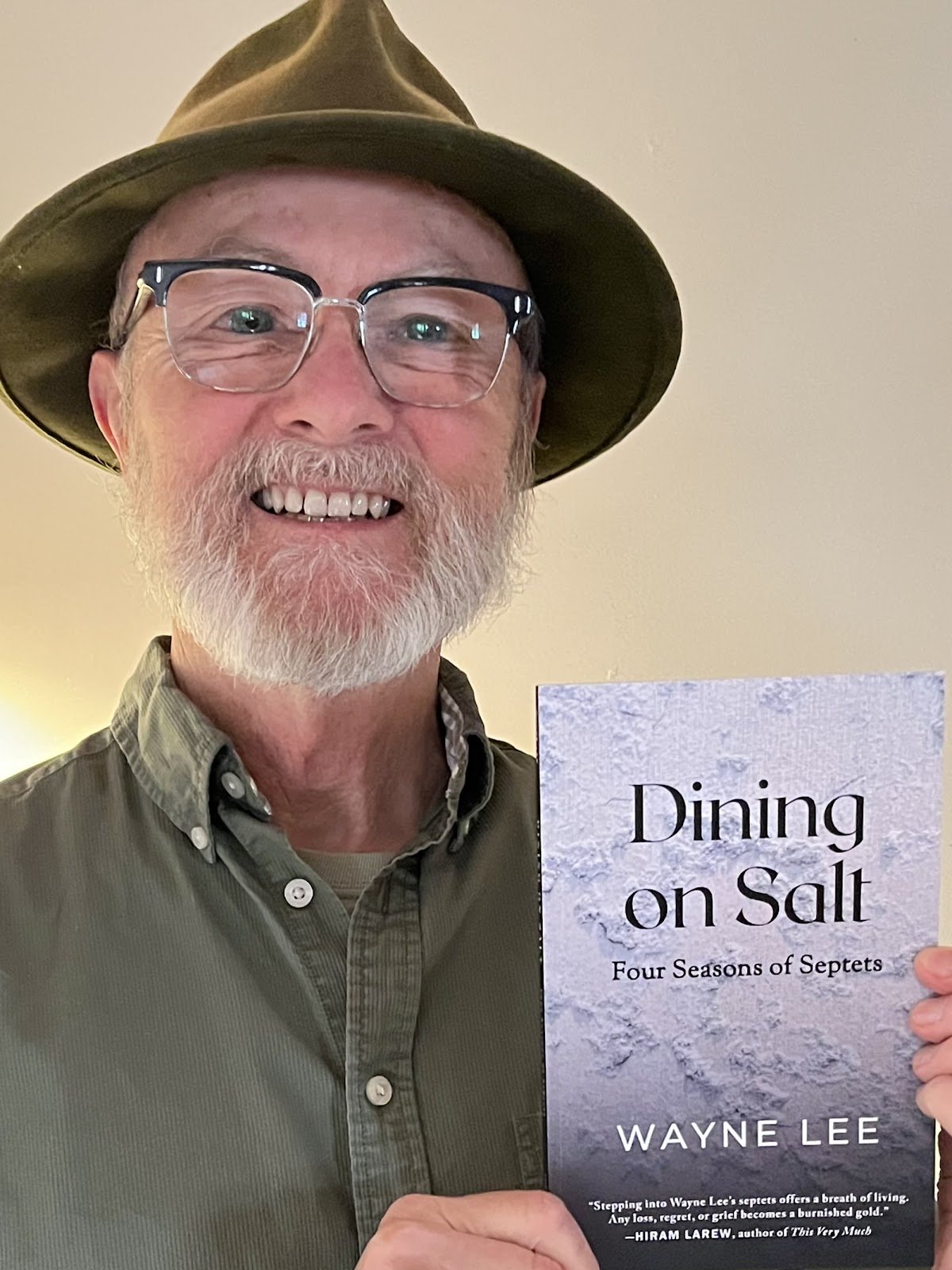Instructor: Wayne Lee
Hosts: Jules Nyquist & John Roche
in-person at Jules’ Poetry Playhouse - Placitas, New Mexico
10 am - 3 pm (with one hour on-site writing lunch break)
All materials included - handout emailed one week before class
Class limit 10 students.
Writing lunch break at noon at Jules Poetry Playhouse. Bring your own lunch if desired. Plentiful snacks and beverages provided (coffee, tea, water, scones and/or bagels, chips, salsa, cookies). Ample time to explore the grounds of Jules’ Poetry Playhouse and walk the labyrinth.
Bring writing materials, free wi-fi if needed.
Author books will be for sale, along with Poetry Playhouse Publications books and art.
Directions and contact info sent with registration. Questions? Email jules@poetryplayhouse.com.
This poem by Wayne Lee is the epigraph for his new collection Dining on Salt: Four Seasons of Septets, Cornerstone Press
To find the words for this
day as it unfolds, to hold this life
within one breath, to know this love
as it opens its eyes in tingle and pulse,
to wait for what must pass while passing by,
to crack the secret code scratched in sand,
to chant with the heart and sing
with the soul, to dance while still alive.
Sherman Alexie has also written a number of sevenlings. “Communion” is one of Wayne’s favorites:
This is the last poem I will write about salmon,
My tribe’s Jesus fish, our God fish, bedamning
And bedamned. I will no longer examine
And reexamine the sins that doomed our fish.
I will not weep. My pain and fear are banished.
This is my last lamentation, my last wish:
Let my people’s famine become our Eucharist.



